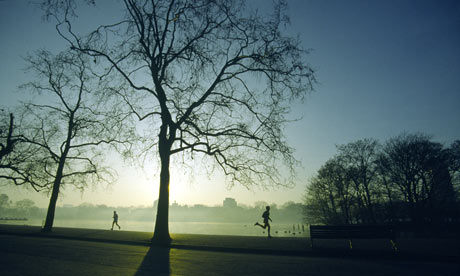
Recently, a string of articles cropped up online like:
Marathon running is bad for you, and it's best to keep exercise to a maximum of 50 minutes a day say doctors - http://www.independent.co.uk/
Too much exercise may be bad for you - http://clovetwo.com/
Too much exercise may be bad for your heart - http://news.insing.com/
Researchers found that too much exercise can wear out your heart. High intensity exercise continued over hours and repeated regularly over years and decades “stretches” the heart, disrupting muscle fibers and causing micro-tears that do permanent damage. There are signs of damage after a single marathon but these rapidly return to normal after a week. If the damage is repeated, however, it can eventually lead to scarring and stiffness.
Vigorous exercise is good for health but only if it is limited to a maximum daily dose of between 30 and 50 minutes. If you really want to do a marathon or full distance triathlon, it may be best to do just one or a few and then proceed to safer and healthier exercise patterns. A routine of moderate physical activity will add life to your years as well as years to your life. In contrast, running too far, too fast, and for too many years may speed one’s progress to towards the finishing line of life.
The researchers analyzed recent studies, particularly two that have been presented at major medical conferences that support their claim that exercise is best done in moderation. One study tracked the heart health of more than 50,000 people over the span of 30 years, finding that while the 14,000 runners in the study were more likely to live longer, those benefits were limited only to those who ran between five and 20 miles a week. The longer distance runners did not live any longer than the non-runners. The second study- based on 20,000 Danes- found that slow jogging can increase life expectancy.
You can have too much of a good thing. Like everything else, anything in excess can do you harm. It seems that it's true for exercise too. Before you say why bother to exercise at all, the take home message is "it's TOO MUCH exercise might be bad for you, NOT exercise might be bad for you".
















